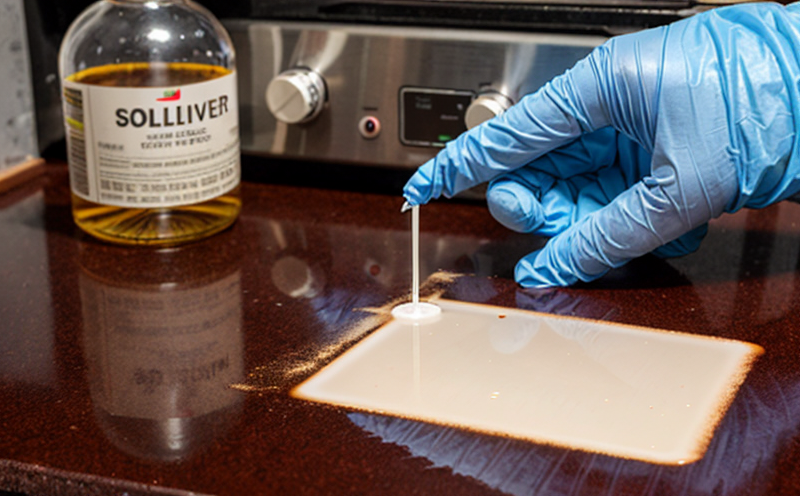Processed Food Solvent Residue Testing
In today's globalized food industry, the presence of solvent residues in processed foods can pose significant health risks and impact consumer trust. Our comprehensive Processed Food Solvent Residue Testing Service ensures that your products meet international safety standards.
Solvents used in packaging, processing aids, or manufacturing processes can inadvertently transfer to the food product. These residues are often detected during routine quality checks and regulatory audits. Our laboratory uses advanced analytical techniques like Gas Chromatography-Mass Spectrometry (GC-MS) for precise measurement of solvent residues.
The importance of this testing cannot be overstated, especially given that even trace amounts of certain solvents can have adverse effects on human health. Regulatory bodies worldwide, such as the U.S. Food and Drug Administration (FDA), European Food Safety Authority (EFSA), and others, set strict limits for solvent residues in food.
Our service is tailored to meet the needs of quality managers, compliance officers, R&D engineers, and procurement teams who are responsible for ensuring product safety and regulatory compliance. We offer a full suite of testing solutions that can help you identify potential risks early on in your supply chain or production process.
The testing procedure involves several key steps: sample preparation, extraction using appropriate solvents, purification if necessary, and final analysis by GC-MS. Our laboratory adheres strictly to international standards such as ISO 17025 for proficiency in our methods.
Once the test is complete, we provide detailed reports that include not only the results but also recommendations for corrective actions should any residues be found above acceptable limits. These reports are essential tools for maintaining both internal quality controls and external regulatory compliance.
We pride ourselves on providing accurate, reliable data that can help you make informed decisions about your product's safety and quality. By partnering with us, you gain access to state-of-the-art facilities and experienced professionals dedicated to delivering excellence in every aspect of our service.
Scope and Methodology
| Test Parameters | Description |
|---|---|
| Solvent Identification | Detection of common solvents used in food processing. |
| Sample Preparation | Involves homogenization, filtration, and concentration steps as needed. |
| Extraction Method | Utilizing solvents like dichloromethane or acetone for extraction. |
| Purification (if required) | Cleanup of samples to eliminate matrix interferences. |
| GC-MS Analysis | High-resolution mass spectrometry for precise identification and quantification. |
Customer Impact and Satisfaction
- Enhanced product safety leading to increased customer trust.
- Compliance with international standards reducing the risk of recalls or fines.
- Optimization of production processes through early identification of issues.
- Improved supplier relationships due to transparent quality assurance practices.
Environmental and Sustainability Contributions
Our solvent residue testing service not only benefits your business but also contributes positively to environmental sustainability. By ensuring that no harmful substances find their way into the food supply, we help reduce the overall ecological footprint associated with processed foods.
This practice supports broader sustainability goals by fostering safer environments for both consumers and producers alike. It aligns perfectly with global initiatives aimed at promoting healthier lifestyles while minimizing negative impacts on natural resources.





